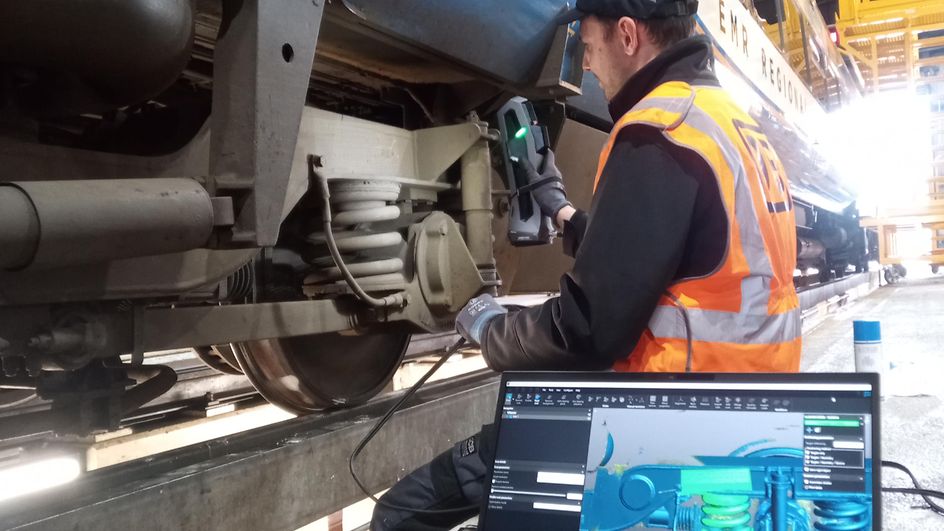Article: Digital Engineering
New Name, New Year, New Horizons: Embracing Digital Engineering at DB ESG
As we kick off 2025, DB ESG is embarking on an exciting new chapter. We are proud to announce the evolution of our digital manufacturing service into something that better reflects the critical role engineering plays in shaping the future of our industry.
Introducing Digital Engineering
This isn’t just a name change—it’s a strategic shift that highlights the vital integration of engineering in everything we do. By putting engineering at the forefront, we’re reinforcing our unwavering commitment to innovation, precision, and excellence in every project we undertake.
At the heart of our service is a powerful engineering capability that designs, optimises, and refines solutions to ensure the highest levels of quality, efficiency, and reliability. It’s the intricate and essential work that drives our success, and we’re proud to give it the attention it deserves.
As a leader in the sector, DB ESG is at the cutting edge of this technology. Our mission is to leverage this advanced expertise to tackle some of the most pressing challenges in rail—addressing obsolescence, minimising downtime, and optimising maintenance procedures to ensure vehicles stay on track and operational longer.
Our approach is a continuous cycle of planning, execution, and improvement, allowing us to stay ahead of the curve in delivering innovative solutions that elevate the rail industry.
Why This Matters
By combining digital technology with world-class engineering, we’re transforming the way rail vehicle parts are designed and produced. Our Digital Engineering service ensures that the future of rail transport is not only more efficient but more resilient, sustainable, and innovative.
Join us in celebrating this exciting new phase as we revolutionise the rail industry.
What is DB ESG’s Digital Manufacturing experience?
DB ESG has extensive experience in digital manufacturing for the UK rail sector, having started our journey with 3D printing and 3D scanning technology in 2018. Since then, rapidly expanding into the supply of digitally manufactured parts for the purposes of prototyping, tooling, and final part manufacture.
The bulk of this work has been completed in collaboration with rolling stock asset management company Angel Trains, with a particular focus on the reverse-engineering and manufacture of obsolete components for which original inventory, tooling and drawings are no longer available.
DB ESG and Angel Trains were the first in the UK to produce 3D printed replacement parts, which were put into commercial service, namely seven grab handles and four armrests, all parts being finished to such a standard that they were indifferentiable from the original components. The parts were fitted to a Class 165 train owned by Angel Trains and operated by Chiltern Railways in the summer of 2019, a visual inspection of the parts was conducted one year later, and the parts remain in operation to this date.
DB ESG also takes an active role in Mobility Goes Additive (MgA), a transnational working group founded by parent company Deutsche Bahn (DB), that aims to coordinate the efforts of rail and aviation operators across Europe in exploiting additive manufacturing technologies. DB ESG’s Mechanical Engineering Manager, Martin Stevens, is the chair of the Railiability working group, which focusses on the use of 3D printing in rail. The focus is to improve reliability on the railways, be it through the replacement of obsolete components or the manufacturing of new designs enabled by 3D printing technology.
As a company within MgA, DB ESG are leading efforts to grow the number of available polymers which comply with rail fire standards, thus fulfilling a key challenge specific to the railways.
As a result of the above work, DB ESG has built a wealth of knowledge in the field of digital manufacturing, including:
- A team of expert mechanical engineers, experienced in additive manufacturing and CNC machining.
- Experience in correctly performing structural assessments on 3D printed parts, considering their anisotropic material properties.
- Expertise in the fire assessment of 3D printed parts, and other elements of the approvals process.
- Wide knowledge of finishing and coating requirements for different types of 3D printing technology.
- Owning and operating an FDM 3D printer in house, to produce prototypes, tooling, and a limited number of end-use parts.
- Using 3D printed prototypes and tooling extensively on internal projects
- Working regularly with a broad array of 3D scanning, 3D printing and CNC machining suppliers across the UK.
- Undertaking further R&D work into part finishing, impact resistant coatings, part supply and more.
Something more about Digital Manufacturing
End of the video above

